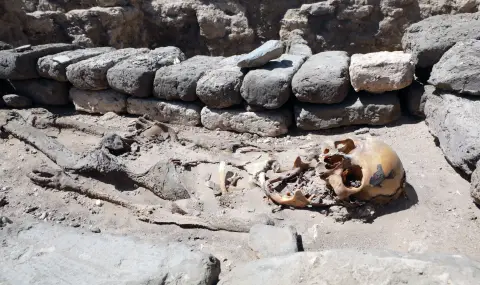Egyptian archaeologists have made a remarkable discovery, finding an ancient sword believed to have belonged to the military forces of Ramses the Great, Aleteia.org reported.
The 3,200-year-old artifact was found during excavations in the remains of barracks at the ancient Egyptian fortress of Tell al-Abkayn in the Nile Delta, 75 kilometers southeast of the city of Alexandria.
The Egyptian Ministry of Tourism and Antiquities emphasized the historical significance of this site. The excavations revealed a complex military fortress, including barracks, storehouses, and various personal effects belonging to soldiers.
Among the treasures discovered is a bronze sword bearing the distinctive cartouche of Ramses II (the Great). Although weathered by time, the sword still prominently displays the pharaoh’s hieroglyphic symbol.
In addition to the sword, archaeologists have found several artifacts that shed light on the daily lives of the fortress’ inhabitants. These relics provide further evidence of the site’s importance in protecting Egypt from external threats.
The mud-brick barracks contain both rooms for housing soldiers and rooms for storing weapons and food supplies. Weapons used in battle, hunting tools, jewelry, personal hygiene items, ceramic beads, scarabs, and protective amulets give us a glimpse into life at the base in ancient times. Ramesses the Great ruled from 1279 BC to 1213 BC.
The sword was found in a small room in the barracks, near an area where an enemy would have tried to penetrate, indicating that the weapon was not a ceremonial weapon but was intended for combat. The barracks were built along a military road in the northwestern Nile Delta. This location was strategic and would have allowed the troops to confront groups coming into the Nile Delta from the Western Desert or the Mediterranean. "This is an important discovery for understanding the strategy and especially the logistics of the Egyptian army under Ramses II," said Peter Brand, a professor of history at the University of Memphis, Tennessee, quoted by nationalgeographic.bg.
